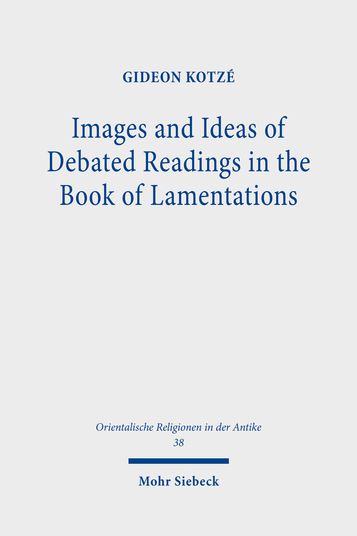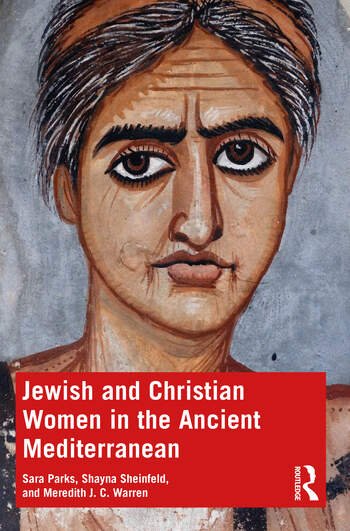Unfamiliar Selves invites biblical studies to engage in broader discussions in the study of religion through comparison of our primary texts with ethnographic work on spirit possession practices across the world today.
Read MoreJewish Spirits and Christian Specters
“Christianity is a subtler, quieter apparition in this book than it is in much past scholarship on the topic—but it lurks nevertheless, going bump in the night and thereby shaping the discussion in implicit ways.”
Read MoreSelves, Spirits, and the Usefulness of Comparison
Merely establishing the existence of “spirit” language in ancient Jewish texts, rather than identifying its particularity–the local realities with which it intersects and the specificity of the literary representations by which it is constituted–risks evaluating ancient Judaism from the standpoint of Christianity.
Read MorePossession and Relational Moral Agency
“I think we rather need to compare how the modern conceptualizations of spirit possession are similar or dissimilar to the ones in biblical texts. To put it bluntly: We do not need to see what makes an angel in ethnographic data and how people describe angels in order to see which beings in biblical texts might qualify as angels. Rather, we may compare different angel conceptualizations and narratives.”
Read MoreThe Critical Potential of Spirits: Hebrew Philology, the Poetics of Relation, and Unfamiliar Selves
“Flying in the face of scholarship’s “hermeneutical exorcism,” Carlson tells ethnographic stories about people who experience spirit phenomena. Reading their stories has the potential to generate what Édouard Glissant calls the “poetics of relation.” Opportunities for renewed and reconnective perception and perspective-taking, Glissant’s poetics of relation are his key to the project of “transforming mentalities and reshaping societies.””
Read MoreSBL 2022 Review Panel: Unfamiliar Selves in the Hebrew Bible
The 2022 SBL Book Review panel of Unfamiliar Selves in the Hebrew Bible: Possession and Other Spirit Phenomena (De Gruyter 2022) by Reed Carlson. The panelists were: Jutta Jokiranta (University of Helsinki), David Lambert (University of North Carolina), Ingrid Lilly (Wofford College), and Ethan Schwartz (Villanova University).
Read MoreMultilingualism and Translation in Ancient Judaism
Steven Fraade provides a preview of his forthcoming publication on Multilingualism and Translation in Ancient Judaism (Cambridge University Press, June 2023).
Read MoreRetrospective | My Journey with the Dead Sea Scrolls
“I often think that scholarly understanding of the biblical Dead Sea Scrolls and I grew up together; over the years, and now decades, a paradigm shift has occurred in the field, and my own views have changed along with it.”
Read MoreRediscovering Enoch from the Fifteenth to Nineteenth Century
Annette Reed introduces the dynamic range of scholarship in a new edited volume discussing Enoch’s modern reception.
Read More"Going West" in Talmudic Literature | Publication Preview
Reuven Kiperwasser shares his process of writing Going West: Migrating Personae and Construction of the Self in Rabbinic Culture in his own transient state.
Read MoreImages and Ideas of Debated Readings in the Book of Lamentations
The project Kotzé sets out on, then, is more than a guide for text critical issues in Lamentations. It seeks, rather, to blend text criticism with an interpretive process keen on finding contemporary parallels in neighboring cultures.
Read More2022 AJR Year in Review
Rethinking The “People of the Book”
By thinking with premodern Christians as they imagined Muslims and Jews, we can also take a reflexive look at ourselves in the present. How and why do we identify with objects, particularly those from the past?
Read MoreDivine Accounting: Theo-Economics in Early Christianity
In Divine Accounting, Quigley contends that the modern categories of “theology” and “economics” were not separate in antiquity but intertwined.
Read MoreChristian Monastic Life in Early Islam
My book attempts to address this particular historical context and argues for not only a general religious tolerance in the early centuries of Islam, but for an overlapping of sectarian boundaries throughout the period.
Read MoreLiterary Theory and the New Testament
Throughout Literary Theory and the New Testament, Dinkler builds a persuasive case for the contributions literary theory continues to make to the field of New Testament studies.
Read MoreThe Journey of Christianity to India in Late Antiquity: Networks and the Movement of Culture
The Journey of Christianity to India in Late Antiquity is a compelling take on how some Christians imagined an interconnected late ancient world.
Read MoreJewish and Christian Women in the Ancient Mediterranean
The authors explore in detail the roles women played, attending to commonalities and particularities of “Jew and Gentile” women. From the very beginning, the authors take great care to guide those who will teach from this textbook, and they are explicit about the book’s scope and limitations. Readers will find not only a useful primer for studying gender within ancient texts, but also, a detailed account of the various ways in which readers and students themselves interpret these texts.
Read MoreThe Spirit within Me: Self and Agency in Ancient Israel and Second Temple Judaism
“In this innovative and deeply engaging study, Newsom sparks new ways of thinking about models of moral agency in biblical and early Jewish literature and paves the way for a broader application of the analysis that considers Jewish literature composed in Greek or the literature of other cultures.”
Read MoreThe Politics of Roman Memory: From the Fall of the Western Empire to the Age of Justinian
What did being Roman mean after 476? And how did the notion that the Roman empire could fall shape political rhetoric in the east?
Read More

















